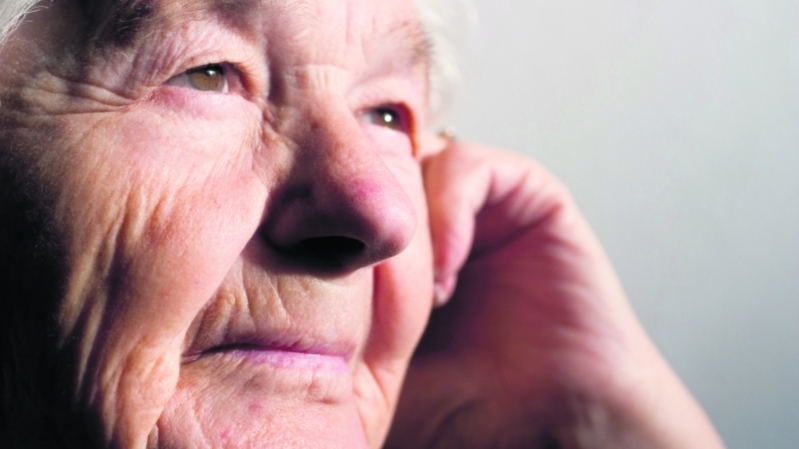
Seniors with hearing loss who use hearing aids may experience cognitive decline at a rate more like their peers without hearing trouble, according to a French study that followed thousands of seniors for 25 years.
Past research has shown a link between hearing loss and steeper cognitive decline in old age, but few have tracked that relationship over a quarter century.
"With a large sample size and 25 years of follow-up of participants, this study clearly confirms that hearing loss is associated with cognitive decline in older adults," said the study's lead author, Helene Amieva. "Using hearing aids attenuates cognitive decline in elders presenting with hearing loss."
Amieva, a researcher at the University of Bordeaux in France, pointed out that about 30 percent of people age 65 and older have some degree of hearing loss and that's true of 70 percent to 90 percent of those aged 85 and older.
"It is well known that individuals with hearing loss often experience depressive symptoms and social isolation," Amieva said in an email.
To see if hearing loss contributes to cognitive decline with age, and if hearing aids might offset that effect, the researchers used data from a large, long-term study of people in France who were 65 and older and living at home, rather than in institutional settings, when they were first recruited in 1989-1990.
Amieva's team focused on more than 3,700 people who answered questionnaires 12 times over 25 years and underwent psychological exams to assess their cognitive skills and mood. Of this group, 137 people reported at the outset that they had major hearing loss, another 1,139 had moderate hearing problems such as trouble following conversations with several people talking or in a noisy background and 2,394 had no hearing troubles.
Those with hearing loss were more likely to be men and less educated, to have depressive symptoms and more chronic diseases, and to be more dependent on others, the authors report in the Journal of the American Geriatrics Society.
Cognitive decline was measured with a 30-point questionnaire often used to screen for dementia, which includes questions such as what year it is and asks individuals to repeat simple phrases. The participants' ability to perform activities of daily living well, and their degree of depressive symptoms were also assessed.
After accounting for age, gender and education, the researchers found there was a significant association between hearing loss and a lower score on the mental health screening, as well as greater cognitive decline over the 25-year period.
Overall, people with hearing loss scored lower for cognitive skills at the beginning of the study compared to the people without hearing loss.
But among those with hearing loss, people who used hearing aids experienced a rate of decline in cognitive skills that was more like those without any hearing loss. For participants with hearing problems who did not use hearing aids, the decline was steeper, translating to an extra 1.5 points of decline on a 30-point scale over 25 years.
"It is a significant decline, both from a clinical and statistical point of view," Amieva said.
After adjusting for depressive symptoms, social networks, chronic diseases, dependency, psychotropic drug use and dementia, however, the differences in cognitive decline diminished, the authors note.
"One thought is when individuals do have hearing loss, what happens is they miss bits and pieces of information and so it isolates them," said Thomas Zalewski of Bloomsburg University of Pennsylvania, who was not involved in the study. "So when people are isolated, they aren't communicating as much and what happens is this vicious cycle."
"They're not engaged and we all know when we're not engaged, we have this increase in cognitive decline," he said.
The study team concludes that auditory rehabilitation programs should be considered for older people who can't hear well. Such programs include listening and communication skills, as well as instruction in the use of hearing aids.
"These results underline the importance of addressing the problem of under-diagnosis and under-treatment of hearing loss in elderly adults," Amieva told Reuters Health.






